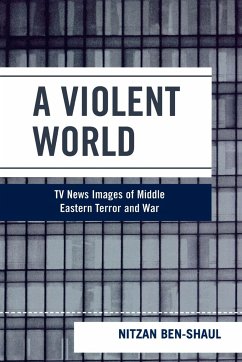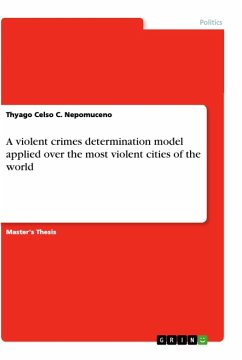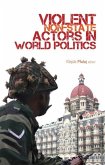A Violent World analyzes images on global CNN, Israeli IBA, and Palestinian PATV that contribute to how the current violence in the Middle East is framed. Nitzan Ben-Shaul draws from critical media theory and approaches out of cinema studies to examine how dominant ideologies are embedded in mainstream TV news. He focuses on the American elites' global ideology and the conflicting dominant national-peripheral ideologies of Israeli-Palestinian elites, and his in-depth study further offers a new model of analysis for contemporary television news.
Hinweis: Dieser Artikel kann nur an eine deutsche Lieferadresse ausgeliefert werden.
Hinweis: Dieser Artikel kann nur an eine deutsche Lieferadresse ausgeliefert werden.
A Violent World is a valuable contribution to critical media studies and more specifically to a better understanding of comparative international media. -- Courtney C. Radsch, American University International Journal Of Communication A Violent World is a unique book that provides an original and comprehensive analysis connecting global political and economic developments and ideologies with TV reports about violence. This is a bold and excellent analysis that uses macrolevel perspective to explain the contents of the mainstream news. Thus, this book provides a meaningful contribution not only to the studies of communication, but also to political science, economics, political psychology, and studies of culture. -- Daniel Bar-Tal, past president, the International Society of Political Psychology








